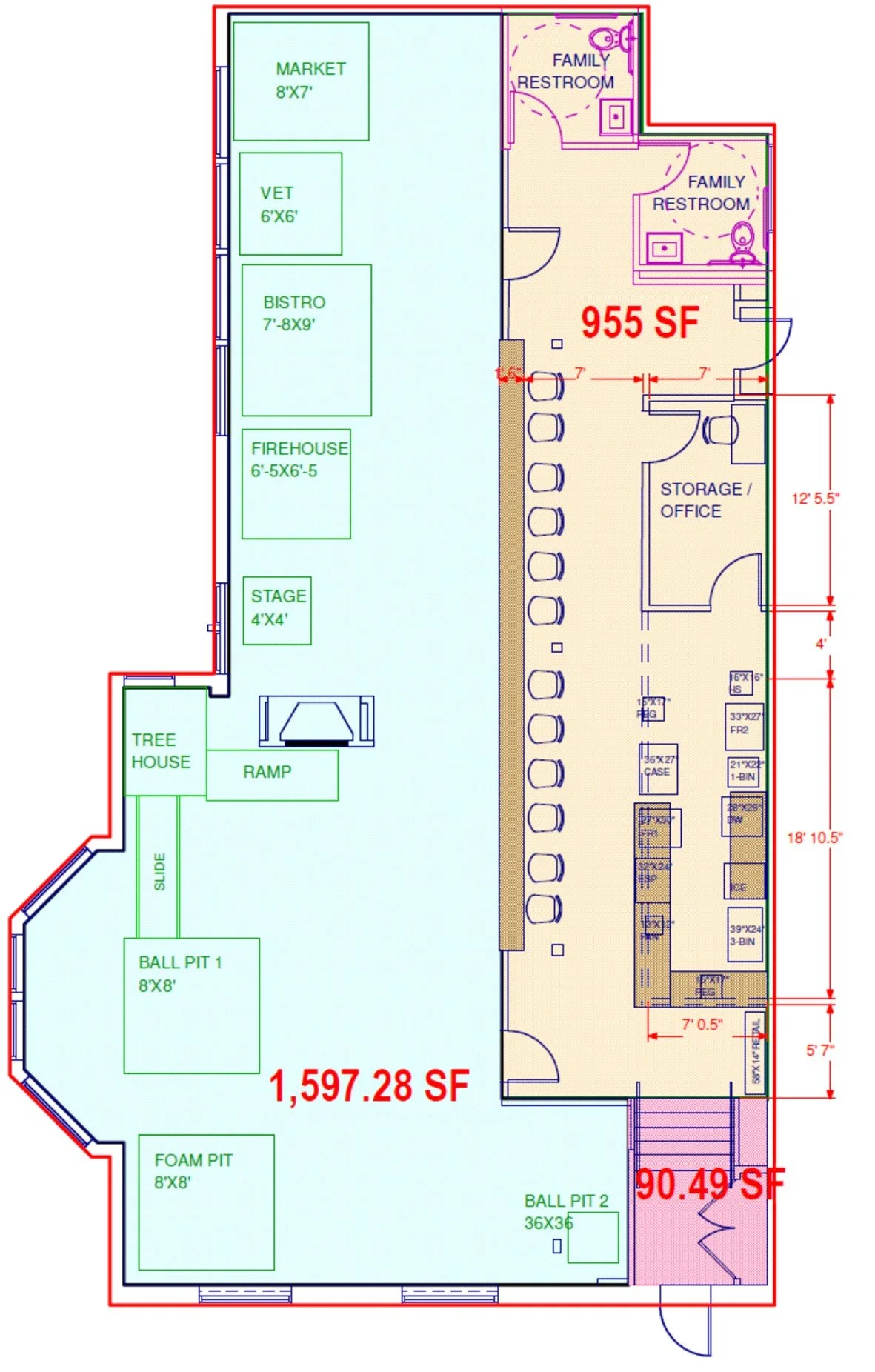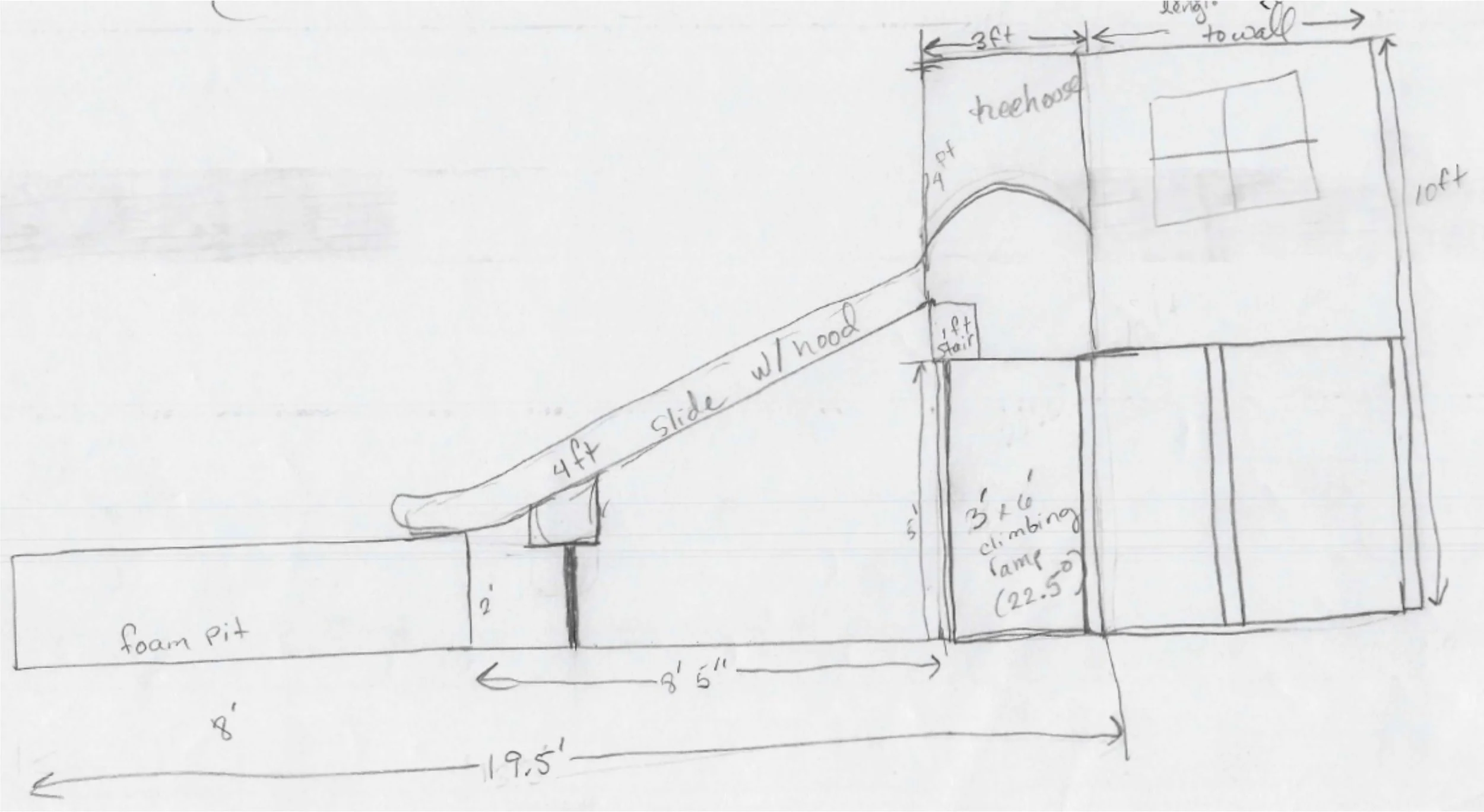Our play area is designed for a wide variety of play to engage your children and offer something new to discover with every visit. Types of play at Totsy Turvy:
Imaginative play houses including a grocery market, animal hospital, firehouse and french bistro
Gross Motor Play including a slide, ball pit and foam pit with climbing ropes
STEM activities including a magnet wall, Lego station, sensory walls
Arts and Creative including a performance stage, a ceramic painting station, drawing and coloring
The TOT SPOT designed for babies 0 - newly walking includes a baby slide and foam pit with sensory walls, mirrors and specialty toys designed specifcally for their phase of development
Imaginative Play
Imagination plays a crucial role in early childhood development, offering a wide range of benefits for children’s cognitive, social, emotional, and physical well-being. Imaginative play is a multifaceted activity that positively impacts various aspects of a child's development, including cognitive, social, emotional, and physical domains. It serves as a foundation for learning and helps children acquire essential skills for future success.
Benefits of Imaginative Play in Early Childhood
Cognitive Development: Imaginative play helps children develop cognitive skills such as problem-solving, critical thinking, and decision-making. It allows them to explore different scenarios, use their creativity, and develop their imagination
Language Skills: Engaging in imaginative play often involves creating and acting out scenarios, which helps improve language skills. Children learn new words, enhance their vocabulary, and develop communication skills as they interact with others during play
Social and Emotional Development: Imaginative play encourages social interaction and cooperation. Children learn to take on different roles, understand different perspectives, and practice empathy. This helps in the development of social skills and emotional intelligence
Creativity and Innovation: Through imaginative play, children are free to create their own worlds, characters, and storylines. This fosters creativity and innovation, allowing them to think outside the box and come up with imaginative solutions to problems
Self-Regulation: During imaginative play, children often take on various roles and situations, requiring them to manage their emotions and behaviors. This contributes to the development of self-regulation skills, helping them control impulses and navigate social situations
Problem-Solving Skills: As children create scenarios and navigate through different roles and situations, they encounter problems that require solutions. Imaginative play provides a platform for them to practice problem-solving skills in a fun and creative way.
Confidence Building: Expressing oneself through imaginative play builds confidence. Children gain a sense of accomplishment as they take on different roles, make decisions, and see the outcomes of their actions
Enjoyment and Fun: Perhaps the most immediate benefit is the sheer enjoyment and fun that imaginative play brings to children. It contributes to their overall happiness, making learning a positive and engaging experience
Gross Motor Play
Gross motor play, which involves activities that engage large muscle groups and encourage physical movement, is not just about fun and games. It plays a pivotal role in fostering holistic development, impacting various aspects of a child's life.
Physical activity has a profound impact on emotional well-being, and gross motor play is no exception. When children engage in activities that bring them joy and a sense of accomplishment, it contributes to the release of endorphins, promoting a positive mood. Additionally, overcoming challenges during physical play builds resilience and self-confidence, empowering children to face life's hurdles with a positive mindset.







